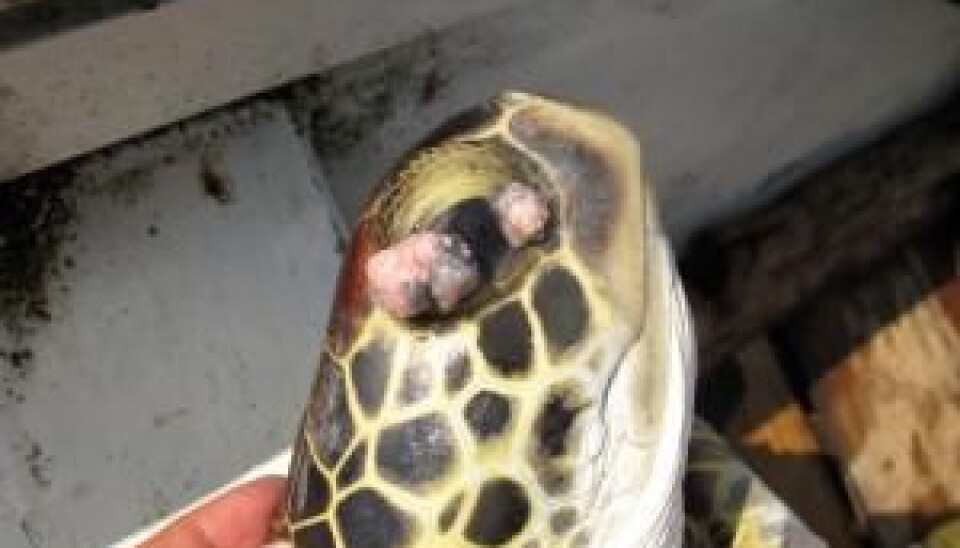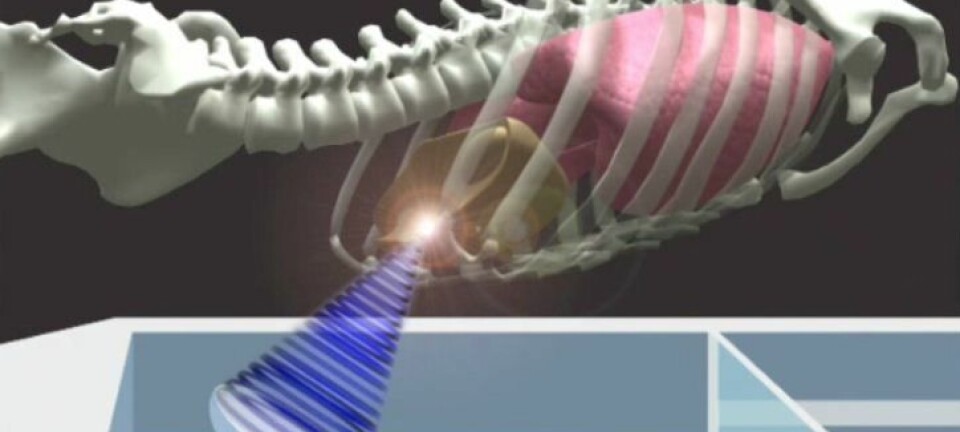
Herpes causes fatal tumours in sea turtles
The herpes virus has long been thought to cause sea turtles to develop fatal tumours. Although the number of the world’s sea turtles developing tumours has been decreasing since the 90s, a new study shows this doesn’t mean that turtles are rid of herpes.
Sea turtles around the world develop large tumours over their entire bodies. These tumours are often fatal, since turtles eventually lose the ability to swim, see, or eat.
While the number of turtles with tumours has been in decline since the late 1990s, a new study shows that many apparently healthy turtles continue to carry the herpes virus latently.
“It is very surprising. When we tested the first sea turtle without tumours, and it turned out that it had herpes, we thought it was a mistake. Unfortunately, it wasn’t,” says study leader Alonzo Alfaro-Núñez, PhD at the Center for GeoGenetics at the Natural History Museum of Denmark.
A widespread phenomenon
To gain an idea of how many sea turtles currently carry herpes, scientists tested 300 tumour-free sea turtles from varying locations across the globe. Their findings indicate that as much as 15 per cent of visibly healthy turtles carried the virus.

"The sea turtles that tested positive represent five out of seven species, and came from many different places in the world. It shows that latent herpes in sea turtles is very widespread,” says Alfaro-Núñez.
Professor Thomas Gilbert, who participated in the study, acknowledged the disparity between the fact that some turtles with herpes grow tumours and others do not.
“There are probably things in the environment that come into play regarding whether the herpes virus causes sea turtles to develop tumours,” says Gilbert.
The scientists behind this surprising discovery originally aimed to test the veracity behind the theory that tumours in sea turtles are caused by herpes. For this part of the research, tissue from 37 sea turtles was tested with PCR technique.
The analysis showed that all sea turtles had herpes in their tumours. According to Alfaro-Núñez, there is no longer any doubt that the turtles’ tumours are partly due to herpes.
“We now know with certainty that the herpes virus is involved in the process that leads to the tumours. It is still uncertain, however, how this happens, and why some herpes-infected turtles develop tumours while others do not,” says Alfaro-Núñez.
---------
Read the original story in Danish
Translated by: Zöe Robertson








